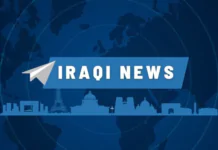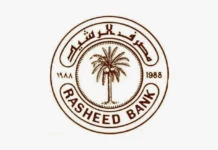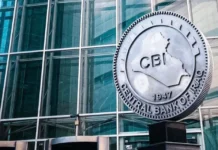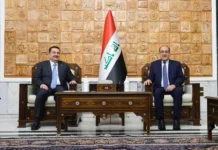Good Morning ,
ISO 20022 Goes Fully Live: A Quiet Revolution in Global Payments
SWIFT’s final cutover retires legacy messaging and ushers in a data-rich financial architecture.
Overview
- SWIFT has officially completed its global transition from MT to ISO 20022, ending decades of legacy payment formats.
- Banks and financial institutions worldwide are now required to use the new standard, expanding data fields, automation capability, and semantic clarity.
- The transition enhances interoperability, creating a unified, machine-readable framework for future digital money systems.
Key Developments
- End of Legacy MT Messages
SWIFT formally ended MT payment instructions, marking the full adoption of ISO 20022 for cross-border payments, securities, and cash management. - Higher-Quality Payment Data
The new format provides structured, enriched data that reduces errors, improves compliance screening, and accelerates settlement speeds. - Foundation for Next-Gen Financial Technology
ISO 20022 enables automated reconciliation, faster straight-through processing, and seamless integration with tokenized assets and CBDC infrastructure. - Global Adoption Momentum
Banks across Europe, Asia, the Middle East, and the Americas have been preparing for years, but the final switch marks the first time all major global payment rails speak a common language.
Why It Matters
ISO 20022 doesn’t change currencies directly — it changes the pipes they move through.
By modernizing global payment messages, it lays the groundwork for programmable payments, digital currencies, enhanced liquidity management, and new layers of interoperability that will reshape how value moves across borders.
Implications for the Global Reset
Pillar 1 — Finance Infrastructure Modernization
ISO 20022 is becoming the backbone of a redesigned global financial system, enabling central banks, clearinghouses, and commercial banks to operate on a unified data standard.
Pillar 4 — Currency Evolution
The standard’s structured data model is compatible with CBDCs, tokenized deposits, and future cross-border digital currency corridors — positioning it as a foundational layer for emerging monetary architectures.
This is not just politics — it’s global finance restructuring before our eyes.
Seeds of Wisdom Team
Newshounds News™ Exclusive
Sources
- PaymentExpert – “SWIFT’s ISO 20022 Cutover: The End of MT and a 20-Year Promise”
- Capco – “ISO 20022: The Silent Revolution in Global Payments”
~~~~~~~~~~
IMF Advances Global Digital Money Oversight
New IMF data protocols aim to unify how nations track CBDCs, stablecoins, and crypto-assets.
Overview
- The IMF has completed its first global test run for collecting digital-money data, covering CBDCs, stablecoins, and crypto markets.
- The pilot is part of the G20 Data Gaps Initiative (DGI-3), designed to standardize how countries report emerging forms of money.
- The framework prepares central banks for a world where digital currencies operate alongside traditional fiat.
Key Developments
- Pilot Data Collection Completed
From July to November 2025, countries tested new protocols for reporting CBDC usage, stablecoin circulation, and cross-border digital transactions. - Moves Toward Unified Global Reporting
The IMF is preparing to roll out a permanent, standardized reporting regime, improving visibility over how digital money flows across borders. - Focus on Systemic Risk & Transparency
The new framework is designed to detect vulnerabilities early, especially in fast-moving digital asset markets. - Preparation for Digital Currency Integration
By harmonizing reporting frameworks, the IMF is laying the technical groundwork for coordinated regulations — and potentially interoperable CBDC systems in the future.
Why It Matters
A standardized global reporting structure for digital money creates the visibility needed for regulators, central banks, and international institutions to manage the growing digital financial ecosystem. This marks a major step toward integrating CBDCs and stablecoins into the core of the global monetary system.
Implications for the Global Reset
Pillar 2 — Diplomacy & Governance
Harmonized digital-money oversight increases coordination between nations and strengthens multilateral influence in shaping the future financial architecture.
Pillar 4 — Currency Evolution
Consistent global reporting makes it easier for CBDCs to become mainstream, accelerating the shift toward programmable and interoperable digital currency systems.
This is not just politics — it’s global finance restructuring before our eyes.
Seeds of Wisdom Team
Newshounds News™ Exclusive
Sources
~~~~~~~~~~
U.S. Signals Possible Intervention in Venezuela as Terror Designation Escalates Tensions
Rep. Maria Salazar suggests Washington may be preparing direct action amid oil, security, and geopolitical stakes.
Overview
- Rep. Maria Salazar claims the U.S. is “about to go in” to Venezuela, signaling potential military or regime-change action.
- The U.S. has designated Nicolás Maduro’s regime and the Cartel de los Soles as a Foreign Terrorist Organization, dramatically raising the stakes.
- Venezuela’s massive oil reserves and alleged ties to hostile groups are being cited as justification for stronger U.S. measures.
Key Developments
- Salazar’s Warning of U.S. Action
Speaking on Fox Business, Rep. Salazar said Maduro “understands we’re about to go in,” framing intervention as beneficial to the U.S. economy and national security. - Oil as a Central Strategic Factor
Venezuela holds the world’s largest proven oil reserves. Salazar argued intervention could unlock “more than a trillion dollars in economic activity” for U.S. companies. - Terrorist Designation Takes Effect
The State Department’s designation of Cartel de los Soles — allegedly headed by Maduro — places the Venezuelan leadership within the same legal framework as foreign terrorist organizations. - Military Pressure Rising
The U.S. has deployed the world’s largest aircraft carrier to the Caribbean, following months of maritime operations targeting suspected drug-smuggling vessels. - Historical Parallels Drawn
Salazar compared the situation to the 1989 U.S. intervention in Panama, suggesting Venezuelans would welcome U.S. forces similarly.
Why It Matters
The convergence of military deployment, terrorist designations, and political rhetoric signals a serious escalation in U.S.–Venezuela tensions. If Washington moves toward intervention, it would reshape hemispheric geopolitics, energy markets, and U.S. relations with Latin America — all at a moment when global power balances are already shifting.
Implications for the Global Reset
Pillar 2 — Diplomacy & Peace Architecture
A U.S. intervention would heighten geopolitical fragmentation, accelerate alignment shifts in Latin America, and further test global diplomatic frameworks already strained by multipolar competition.
Pillar 3 — Markets & Strategic Commodities
Venezuela’s vast oil reserves could become a major factor in global energy restructuring. Any U.S.-led regime change could dramatically influence oil production, pricing, and strategic access critical to the emerging financial order.
This is not just politics — it’s global finance restructuring before our eyes.
Seeds of Wisdom Team
Newshounds News™ Exclusive
Sources
- Anadolu Agency – “US lawmaker says Venezuelan president knows ‘we’re about to go in’”
- Common Dreams – “‘Venezuela, for the American Oil Companies, Will Be a Field Day,’ Says US Lawmaker Pushing Invasion”
- Newsweek – “Republican Says US ‘About to Go In’ to Venezuela, With Oil a Key Reason”
~~~~~~~~~~
Seeds of Wisdom Team RV Currency Facts Youtube and Rumble
Newshound’s News Telegram Room Link
RV Facts with Proof Links Link
RV Updates Proof links – Facts Link
Follow the Gold/Silver Rate COMEX
Follow Fast Facts
Seeds of Wisdom Team™ Website






